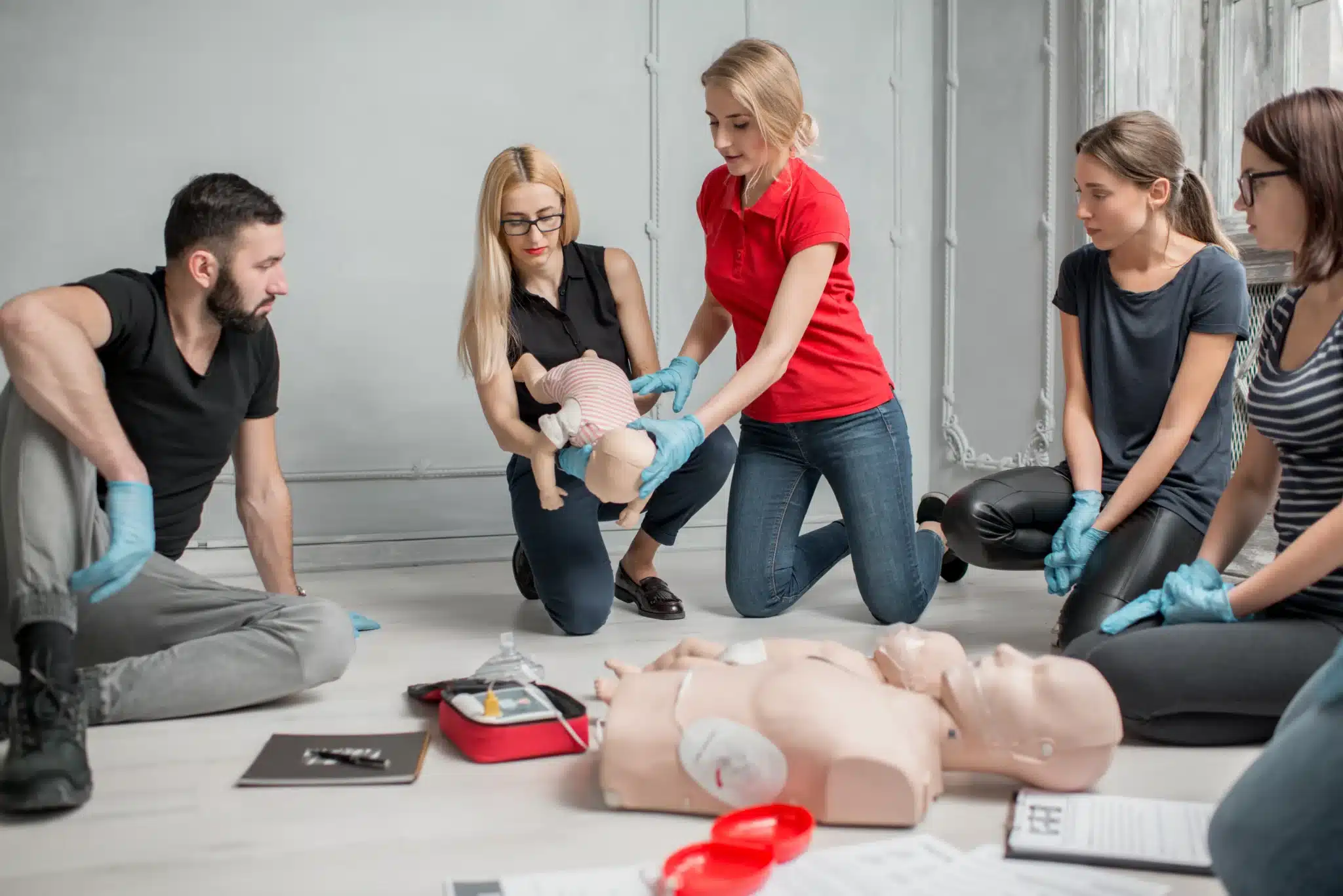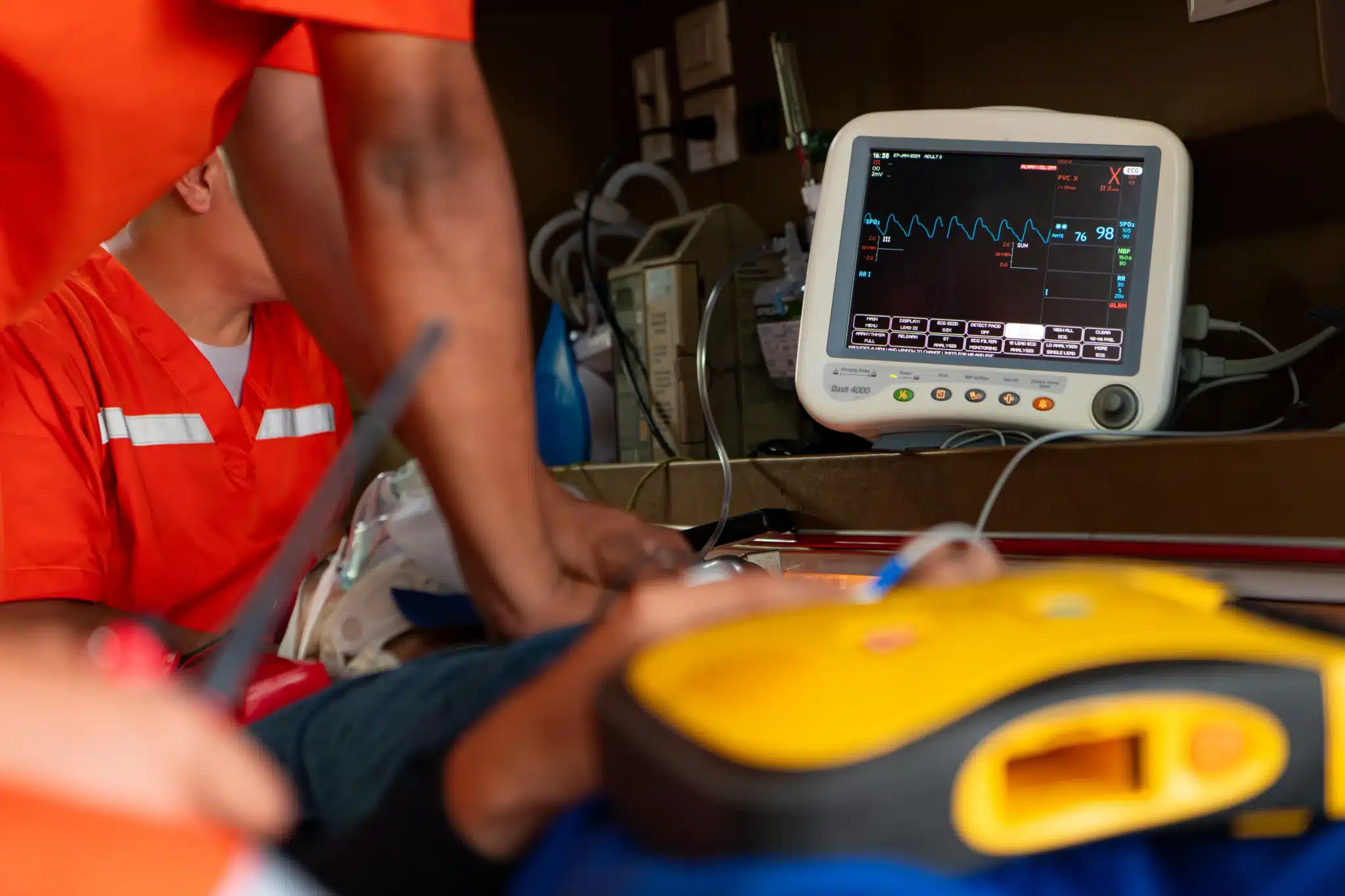Working in healthcare, especially with young patients, means being prepared for anything. Pediatric Advanced Life Support (PALS) certification gives you the confidence and skills to handle pediatric emergencies effectively. But between long shifts and demanding schedules, finding the time for traditional classroom training can be tough. That’s where the flexibility of online PALS classes comes in. This article explores the benefits of online PALS classes in San Jose, helping you find a program that fits your busy lifestyle and empowers you to provide the best possible care. We’ll cover everything from course structure and requirements to top providers and study tips, so you can confidently choose the right path to PALS certification.
Key Takeaways
- Online PALS certification fits your schedule: Blended learning combines online coursework with a brief, in-person skills session, offering flexibility for busy professionals.
- Select an accredited PALS provider: Ensure your certification is widely recognized and the program offers comprehensive training and valuable resources.
- Prepare strategically for online learning: Create a productive study environment, utilize practice materials, and manage your time effectively to maximize your online PALS experience.
What is PALS Certification?
What is PALS?
Pediatric Advanced Life Support (PALS) certification is a specialized course designed for healthcare providers who treat infants and children. It focuses on a systematic approach to pediatric assessment, basic life support, PALS treatment algorithms, effective resuscitation, and team dynamics. The goal is to equip healthcare professionals with the knowledge and skills to confidently manage pediatric emergencies. This specialized training goes beyond basic CPR and prepares providers for the unique challenges of pediatric care. For more information, explore the details of PALS certification.
How PALS Benefits Healthcare Professionals
PALS training offers significant benefits for healthcare professionals. It explores the distinct physiology and health complications that can arise in children, giving providers a deeper understanding of pediatric care. This knowledge leads to better patient outcomes, as providers can quickly recognize and address critical situations. PALS certification also emphasizes effective resuscitation techniques, improving survival rates during emergencies. This specialized training increases a healthcare professional’s confidence and competence in providing quality care to young patients. The American Heart Association offers resources with further insights into the advantages of PALS certification.
Why Choose Online PALS?
Online PALS courses offer a convenient and flexible path to this essential certification. They provide the same comprehensive training as traditional in-person classes, allowing you to learn at your own pace and on your own schedule. This blended learning format typically combines online coursework with a required in-person skills session, a practical approach for busy professionals. Online PALS courses let you study anytime, anywhere, fitting the training around your existing commitments. Online PALS classes offer a flexible approach for those in the San Jose area. Fremont CPR Classes provides a blended learning PALS course that combines online learning with in-person skills practice for those seeking a local option.
Top Online PALS Providers in San Jose
Finding the right PALS (Pediatric Advanced Life Support) certification course is crucial for healthcare professionals. San Jose offers several reputable providers with online and blended learning options. Here’s a closer look at some of the top choices:
American Heart Association (AHA)
The American Heart Association offers PALS certification classes in San Jose, covering both initial certification and recertification. As a recognized leader in resuscitation training, their courses are a solid choice for healthcare providers looking to maintain their skills and knowledge in pediatric emergency care. Visit their website for upcoming class schedules and locations.
Fremont CPR Classes
Fremont CPR Classes provides a blended learning format for HeartCode PALS, combining online coursework with an in-person skills session. This flexible approach allows you to learn the material at your own pace and then demonstrate your skills in a hands-on environment. The total cost for certification is approximately $318, which includes both the online portion and the required in-person skills checkoff. Learn more about their PALS program.
Lifework Education
With over 25 years of experience, Lifework Education offers various CPR, BLS, ACLS, and PALS certification courses in San Jose. Their established presence in the area makes them a reliable option for healthcare professionals seeking PALS certification. Explore their website for more information on course dates, times, and registration.
ProMed Certifications
ProMed Certifications offers a fully online PALS certification course designed for busy professionals. The self-paced format allows you to complete the coursework on your own schedule. This is a convenient option for those juggling demanding schedules or who prefer online learning. Read reviews and learn more about their online PALS course.
HealthStream
HealthStream provides a learning management system that supports various medical training initiatives, including PALS training through the American Red Cross. Their program focuses on preparing healthcare workers to provide high-quality care during pediatric emergencies. Visit their website to learn more about their PALS training options and resources.
Course Structure and Requirements
Understanding the structure and requirements of an online PALS course will help you prepare and choose the right program. Let’s break down the key components:
Online Modules & In-Person Skills Testing
Online PALS courses offer a blended learning approach. You’ll complete interactive online modules covering the core PALS curriculum. This self-paced format lets you learn anytime, anywhere, fitting the training around your schedule. After completing the online portion, you’ll attend a brief, in-person skills session. This hands-on component allows you to demonstrate your skills to a certified instructor and receive personalized feedback. This combination of online learning and in-person practice ensures you grasp both the theory and practical application of PALS.
Time Commitment & Flexible Scheduling
One of the biggest advantages of online PALS certification is its flexibility. The online modules typically take 3–4 hours to complete, and the in-person skills check adds another 30–40 minutes. Because the online portion is self-paced, you can study whenever and wherever it’s convenient. This makes online PALS ideal for busy professionals, parents, and anyone juggling multiple commitments. You can complete the online modules in short bursts or dedicate longer stretches, depending on your learning style and available time.
Prerequisites & Materials
Before starting your online PALS course, ensure you have the required materials. You’ll need a current PALS Provider Manual, available as an eBook or paperback. Often, you can purchase the eBook directly from the training center when you register for your course. Having the manual beforehand allows you to familiarize yourself with the content and come prepared for the online modules.
Costs & Additional Expenses
The cost of online PALS courses typically includes the online modules, in-person skills testing, and your certification card. Expect to pay around $290 for a comprehensive PALS program. This all-inclusive pricing simplifies budgeting and ensures there are no hidden fees. Earning your PALS certification is a valuable investment in your healthcare career, demonstrating your commitment to providing high-quality pediatric care. It can also enhance your resume and open doors to new opportunities.
Prepare for Your Online PALS Certification
Getting ready for an online PALS certification requires a slightly different approach than a traditional classroom. Here’s how to make the most of your online PALS experience:
Study Effectively for Self-Paced Learning
Online PALS courses offer the flexibility to learn at your own pace, anytime, anywhere. This means you can tailor your study schedule around your life. Instead of cramming everything into a weekend course, review the PALS course material over several weeks, dedicating shorter, more focused study sessions each day. This approach can improve knowledge retention and make the information easier to digest. Break the material into smaller chunks, set realistic study goals, and create a consistent study schedule.
Use Support Resources & Practice Materials
Take advantage of all available resources. Many online PALS courses include practice questions, case studies, and simulated scenarios. Working through these practice questions and case studies is excellent preparation for the PALS exam. Don’t hesitate to reach out to the course instructors or support staff if you have questions. Think of these resources as your study buddies—they’re there to help you succeed.
Overcome Common PALS Challenges
One of the biggest challenges of online learning is staying motivated and managing your time effectively. It’s easy to get sidetracked when studying at home or on the go. Create a dedicated study space free from distractions. Set clear boundaries with family and friends during your study time. Remember to be kind to yourself and celebrate your progress. Small wins can keep you motivated and on track. Consider some of the challenges healthcare providers face when balancing work and training.
Choose the Right Online PALS Class in San Jose
So, you’re ready to get your PALS certification—fantastic! Choosing the right online PALS class can feel a little overwhelming with so many options in San Jose. This section breaks down the key factors to consider so you can confidently choose a program that fits your needs.
Key Features to Consider
Think about what matters most to you in a learning experience. Do you thrive in a self-paced environment? Look for courses that offer flexible scheduling and on-demand access to materials. If you value interaction, even in an online setting, some courses offer virtual Q&A sessions with instructors. Consider whether you’d prefer a program with supplemental resources like practice exams or refresher materials. A good online PALS course should mirror the comprehensiveness of a traditional class, just with added flexibility.
Accreditation & Certification Validity
This is non-negotiable. Your PALS certification needs to be widely recognized. Make absolutely sure the provider you choose is accredited. Online PALS certification from an accredited provider, like those offering American Heart Association courses, is widely accepted. This is often a sign of high-quality training that meets industry standards. Don’t hesitate to ask potential providers about their accreditation status upfront. It’s also smart to double-check that the certification is valid in your workplace.
Compare Provider Offerings
Once you’ve narrowed down your options to accredited providers, it’s time to compare what each offers. Look at the course content, the learning platform, and any additional resources. Don’t forget to factor in the total cost. The total cost for HeartCode PALS certification in San Jose is roughly $318, covering both the online portion and the required in-person skills session. Some providers may offer payment plans or group discounts, so it’s worth asking. Check if there are any hidden fees, like exam retakes or renewal costs. Getting a clear picture of the pricing upfront will help you budget effectively.
Make an Informed Decision
Getting your PALS certification is an investment in your career and in the lives of your young patients. By taking the time to research and compare different online PALS classes in San Jose, you can find the perfect fit for your learning style and professional goals. PALS certification equips healthcare providers with the skills to respond effectively in pediatric emergencies. A well-chosen PALS course will give you the confidence to provide critical care when it matters most. Reach out to a few providers, ask questions, and trust your gut. You’ve got this!
Related Articles
- PALS HeartCode Fremont: Your Certification Guide – Fremont CPR Classes
- Best BLS ACLS PALS Training in Fremont – Fremont CPR Classes
- Online PALS Classes in Newark: Your Guide – Fremont CPR Classes
- HeartCode PALS San Jose: Your Certification Guide – Fremont CPR Classes
- Your Guide to ACLS Certification in San Jose – Fremont CPR Classes
Frequently Asked Questions
What is the difference between PALS and basic CPR?
PALS (Pediatric Advanced Life Support) builds upon the foundation of basic CPR. While CPR focuses on immediate life-saving measures for all ages, PALS delves into the specific needs of infants and children. It covers advanced techniques like recognizing and managing respiratory distress, shock, and cardiac emergencies in young patients. PALS certification is essential for healthcare providers who regularly work with children.
How long does a PALS certification last?
PALS certification is typically valid for two years. After that, you’ll need to take a PALS recertification course to keep your skills current and maintain your credentials. Recertification courses are often shorter than the initial certification and focus on refreshing your knowledge and skills.
Can I take the entire PALS course online?
PALS certification involves a blended learning approach. While the majority of the coursework can be completed online at your own pace, there’s a required in-person skills check component. This practical session allows you to demonstrate your skills to a certified instructor and receive personalized feedback. This combination of online learning and hands-on practice ensures you’re fully prepared to handle pediatric emergencies.
What if I fail the PALS skills check?
Don’t worry if you don’t pass the skills check on your first attempt. Most training centers offer opportunities to retake the skills check. They’ll provide feedback on areas for improvement and guide you through the necessary steps to successfully complete the skills check and receive your certification.
How do I choose the right online PALS provider?
Look for a provider that is accredited by a recognized organization like the American Heart Association. Check if the provider offers the format you prefer (blended learning is most common for PALS). Consider the provider’s reputation, course materials, and any additional resources they offer, like practice exams or refresher materials. Finally, compare costs and ensure there are no hidden fees.






